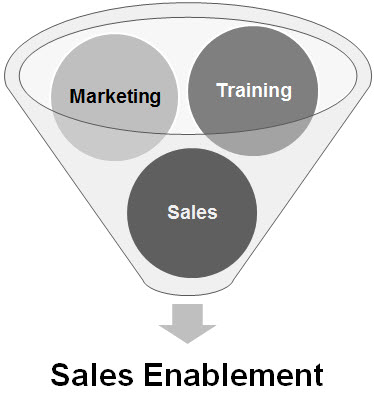Why Should Sales Enablement be in the Sales Organization?

The Sales Enablement team is best suited to produce content, specifically relevant to the sales person. In addition, do it in a way that is optimized for the sales person to consume. So it makes the most sense for the Sales Enablement team to sit in Sales.
Let’s think about it from these two lenses: Content and Audience.
Content: When content (creation, development, etc.) sits outside of sales, the sales aspect becomes diluted. Here’s why…Marketing is producing content for your buyers. The content is focused on buyer objectives and their decision making process. Meaning, the marketing content is focused on solving the buyers’ problem. And not meant to educate a sales person.
You also have the training department producing content. Typically the content is academic and rarely pertinent to the everyday interactions of sales reps. If a sales person doesn’t feel it’s relevant, it will be immediately dismissed. Lastly, Sales Management is well suited to deliver content, but poor at producing the right content.
Audience: How your audience consumes content is as important as the content itself. Is it optimal to have your expensive selling resources sit in a classroom for a week at a time? No. That’s how training typically disseminates content and education. Is it optimal to have marketing load up a bunch of white papers onto the company’s intranet? With the glimmer of hope that someone in sales knows it’s there. No. Again, training and marketing have competing priorities with sales.
Sales Enablement knows how the sales team consumes information. That is via mobile enabled content and individual coaching. The Sales Enablement team is responsible to serve this information in a consumable manner. Also in a way that can be ingested at the right time. Meaning, during a sales process. Or right before a major interaction with a prospect. Remember the definition of Sales Enablement:

What Now?
If you don’t have a Sales Enablement team, implement one now. Or if your sales enablement strategy is fragmented, then centralize it. Your sales strategy will suffer because of the lack of execution and adoption. Download this research report. It will give guidance on how Sales Enablement drives your sales strategy. In addition to the research report. Sign-up for SBI’s Sales Workshop to get the complete overview of a world-class Sales Strategy. Having a world class Sales Strategy is key. But if you don’t have the enablement to support the strategy, you are looking at a potential failure.




